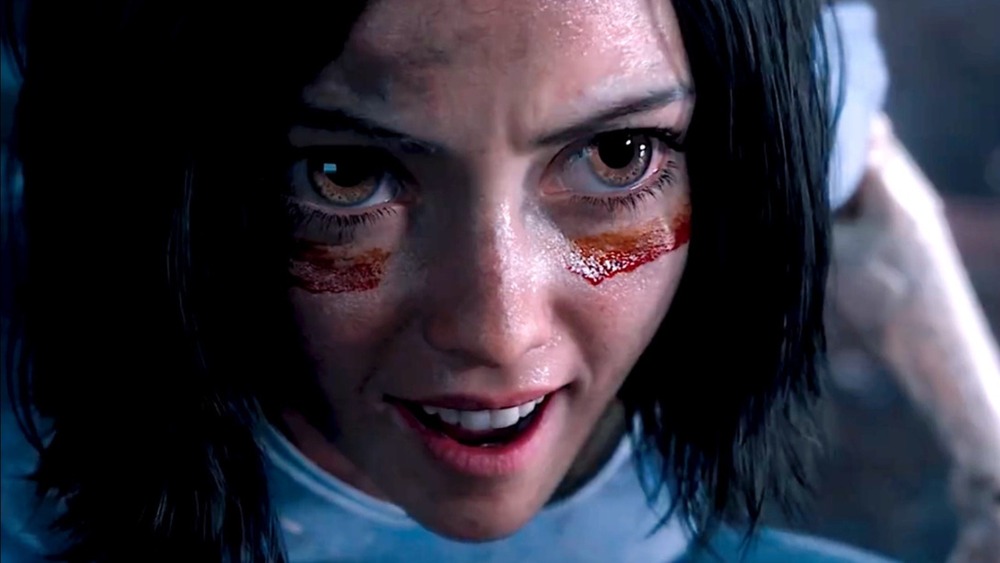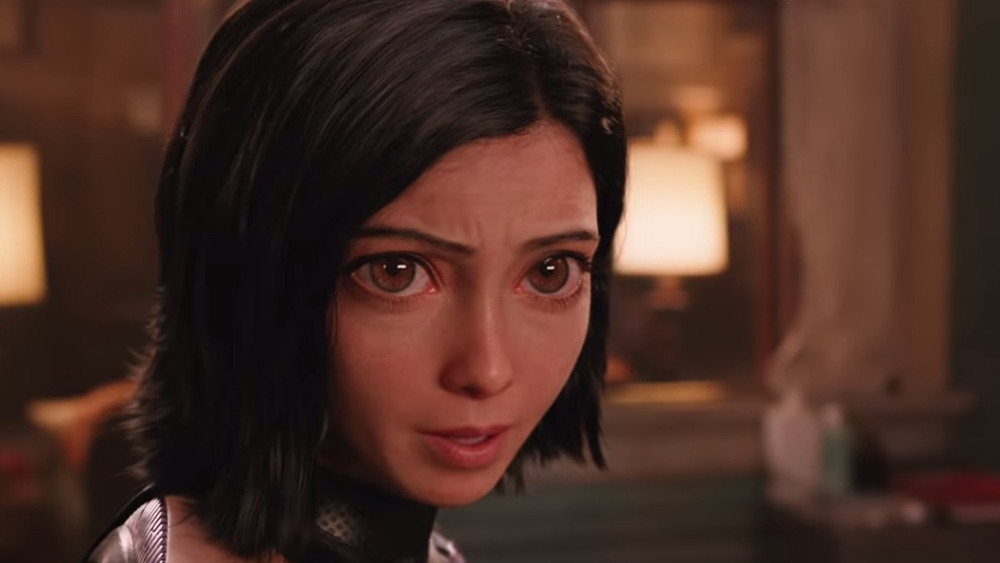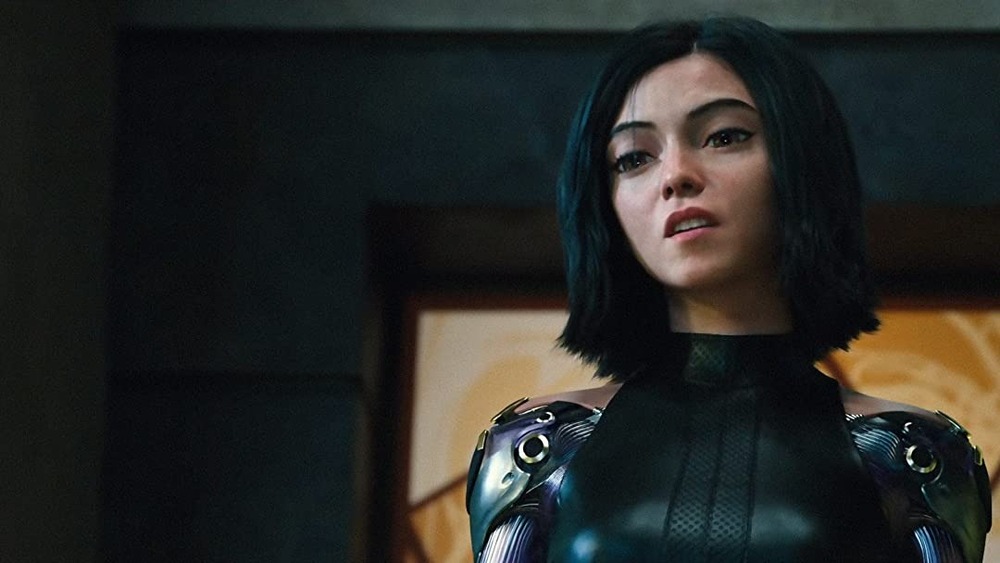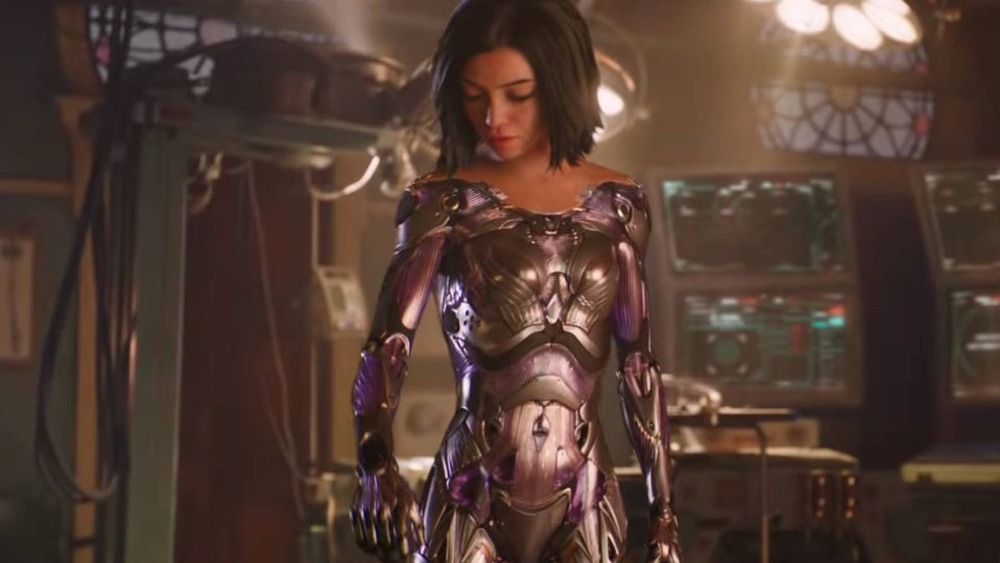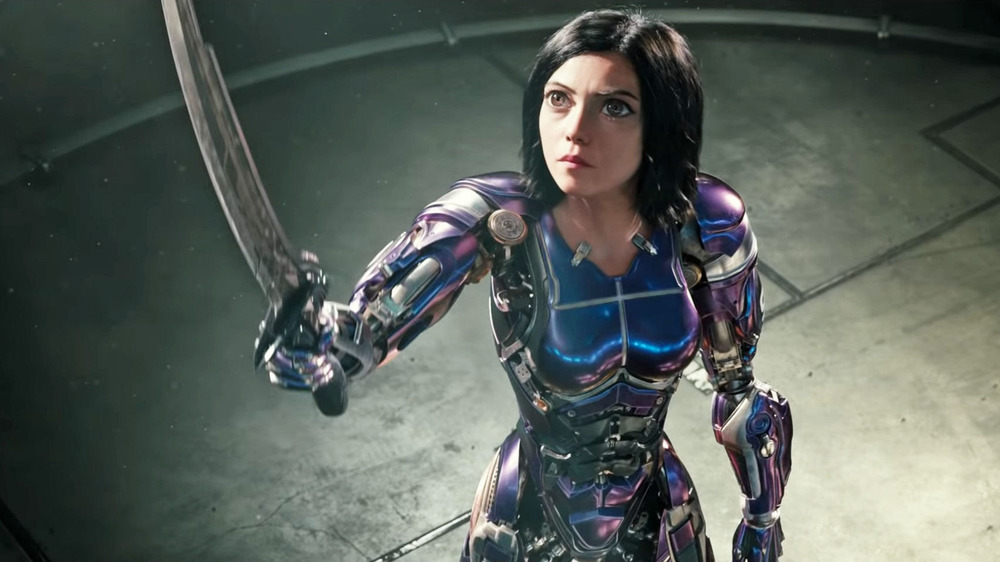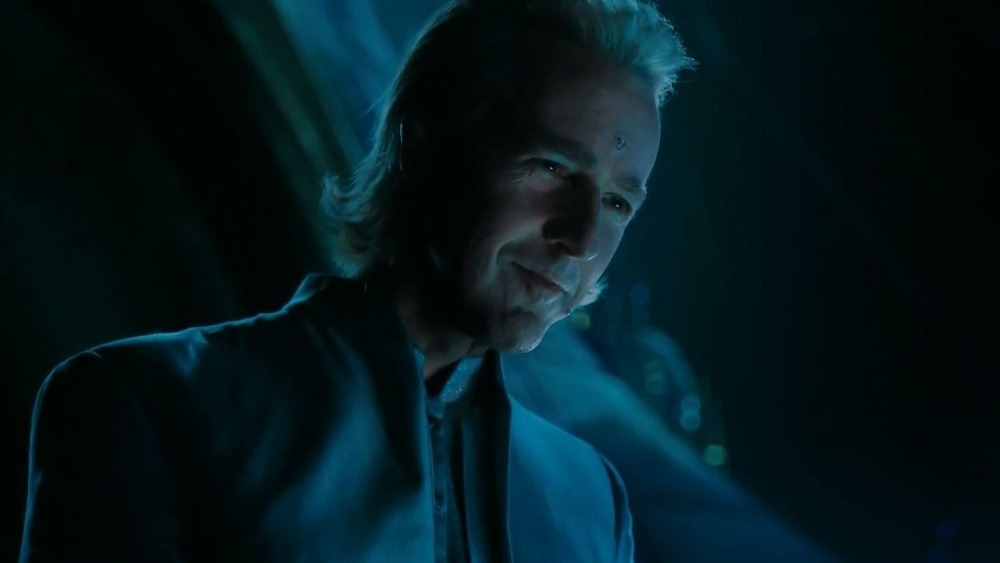The Biggest Reasons Alita: Battle Angel Needs A Sequel
Alita: Battle Angel wasn't a smash success at the worldwide box office, but it didn't perform poorly either. The movie made $405 million globally, boosted chiefly by a strong performance in China. Although the movie wasn't an enormous hit in the US, it's definitely a movie that has its fans stateside. Among those fans, there are many who are hoping that, at some point, the movie will get a sequel.
The movie certainly didn't leave its story in a place where a sequel would be difficult or impossible. In fact, the way that Alita wraps up leaves plenty of space for a sequel to pick things up. There are plenty of reasons that the movie's fans feel that a sequel is essential, and they range from existing source material to loose ends that were left behind in the first movie. Whether a sequel happens or not, these are the biggest reasons why Alita deserves one.
There are still some loose ends
Although Alita ends on a fairly satisfying note, it's one that also feels like it's asking for a sequel. After Hugo, the love of her life, dies in an attempt to get to the wealthy city of Zalem, Alita — played by familiar face Rosa Salazar – appears ready to seek revenge against Nova (Edward Norton), the technocrat in charge of the city who is responsible for Hugo's death.
Although Alita learns a lot about herself over the course of the film, the ending suggests that her character arc isn't finished just yet. There's plenty of additional story to tell in this world, and not just because of the ending.
There's also the question of Alita's origins, and why she was created in the first place. Battle Angel gets at that to some extent, but it doesn't fully answer the question. A film does not need to answer every lingering question posed by its world, but in the case of Alita, there's plenty of potential story that could be covered.
We could move past her origin story
As is often the case at the start of a new potential franchise, the first installment is really more of an origin story. It introduces the main character, offers some information on where she came from, and answers questions around what motivates her. Alita is not a superhero in the strictest sense, but she very much exists within that general archetype.
In a sequel, the filmmakers could move beyond Alita's origin story and tell a story that wasn't burdened with establishing who Alita is. Like any great sequel, it can instead rely on the knowledge the audience already has of the character, using it as a shorthand to pick up her story in a new place. Because they're freed of the expectation that they establish the core character dynamics, sequels are often able to be bolder and more adventurous than the first film in a series can be.
There are plenty of comic books to adapt
Alita: Battle Angel is adapted from a long running series of manga from Yukito Kishiro called Battle Angel Alita. The movie changes certain elements of the story, but it only scratched the surface of the many plots that the manga used over the course of its run.
Like American superhero movies, there's plenty of source material to draw from that could ultimately make for great sequel fodder. Alita is not part of any sort of expanded universe, but that doesn't mean that sequels couldn't offer a different look at the world that the movie's fans are already familiar with.
Having a wealth of source material to draw from means that the movie's writers wouldn't have to scramble to come up with a workable idea for a sequel. There are plenty of great sequel ideas right on the page, and all a sequel would need is for someone to start combing through them.
Alita ends the film looking motivated
In the final moments of Alita: Battle Angel, we see Alita looking strident as she prepares for whatever comes next. In that moment, it's clear that this chapter in Alita's story may be over, but she's ready for what the future is going to bring.
That pose may seem like a small detail, but it's not the kind of definitive resolution you'd expect from a movie if there were no plans for a sequel. Alita's journey doesn't seem to be over. She's gotten over an initial challenge, but she's only lived through her origin story. Now, she's ready to face the bigger problems that lay ahead of her.
Alita's determined pose is a nod toward the future, and a suggestion to audiences that there's more to her story that they'll have to wait to see. Whether they ever actually get to see that future play out on screen is another question entirely.
There's more story to tell with Nova
The big bad of Alita is undoubtedly Nova, who only shows his face at the very end of Battle Angel. The clear implication is that, while Alita has beaten back some of Nova's minions, the threat that Nova himself poses remains very much in tact. Edward Norton's appearance in the film is little more than a cameo, but it suggests that he would be a much bigger presence in future installments of the franchise.
The final moments of the film, in which Alita seems to be looking up at Nova, seem like an implicit nod to the fact that there's more story to tell about the battle that is yet to come between the two of them. Battle Angel was in many ways just the set up for a much broader story, and the sequels would have a chance to more fully dive into that lore.
